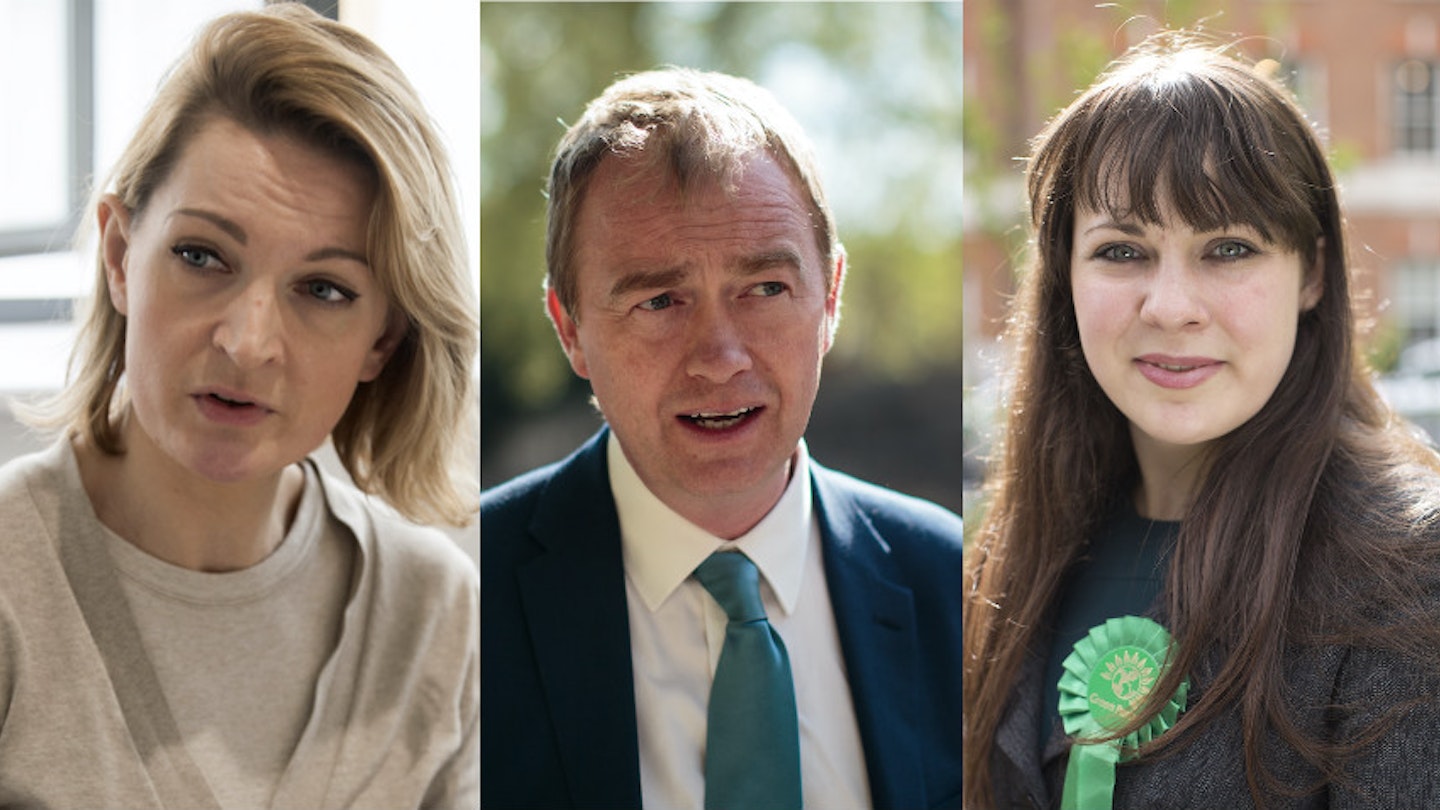With Labour's ratings at rock bottom, the PM believes she's guaranteed a Tory trumph on 8 June. But can the outliers come into their own, asks The Guardian's political editor Anushka Asthana?
‘We need a general election and we need one now.’ With those 10 words, Theresa May delivered her political bombshell: an early general election, which
polls suggest could see a Conservative steel st crushing its Labour
opposition and silencing Brexit dissent.
And yet the 8 June vote represents a snap election that the Prime Minister had promised – at least seven times – not to hold lest it cause instability. So what changed her mind?
May blamed opposition parties, claiming they were trying to jeopardise preparations to take Britain out of the EU. But it can’t be just that. The PM has been – for some weeks – discussing her party’s eye-watering lead over Labour (as high as 21 points in a recent Guardian/ICM poll) with her closest aides. Last week the election expert Michael Thrasher suggested it could translate into a massive 140-seat majority for May – boosting the number of Tory MPs from 331 to 395, with Labour slumping from 229 to 164.
So, can anything stop May in her tracks? In a fast-changing, tumultuous political world, it is those outside of the two political parties that have dominated Westminster politics for decades who believe they have the best chance. After all, this is a world of political disruption, which has seen rank outsider Donald Trump wipe the smile off establishment faces in the US, while as we went to press, France was fearing the rise of Marine Le Pen in its presidential race.
In Britain, the SNP has already caused a political earthquake in Scotland and will hope to hold on to their landslide in seven weeks’ time. UKIP is another party that has created waves, securing four million votes in 2015, and an undoubted driving force behind leaving the EU, but has May’s firm hold of the Brexit agenda successfully shot the party’s fox?
And what of the Lib Dems, who say they are the only party who can prevent a Conservative majority? Could their ferociously pro-European stance leverage them back into contention as a political force? They have expressed interest in a progressive alliance – teaming up with others like the Greens and Women’s Equality Party – to amplify the anti-Conservative voice. Here, we hear from the political parties who believe that Theresa May’s momentous snap election is anything but a foregone conclusion...
Green Party
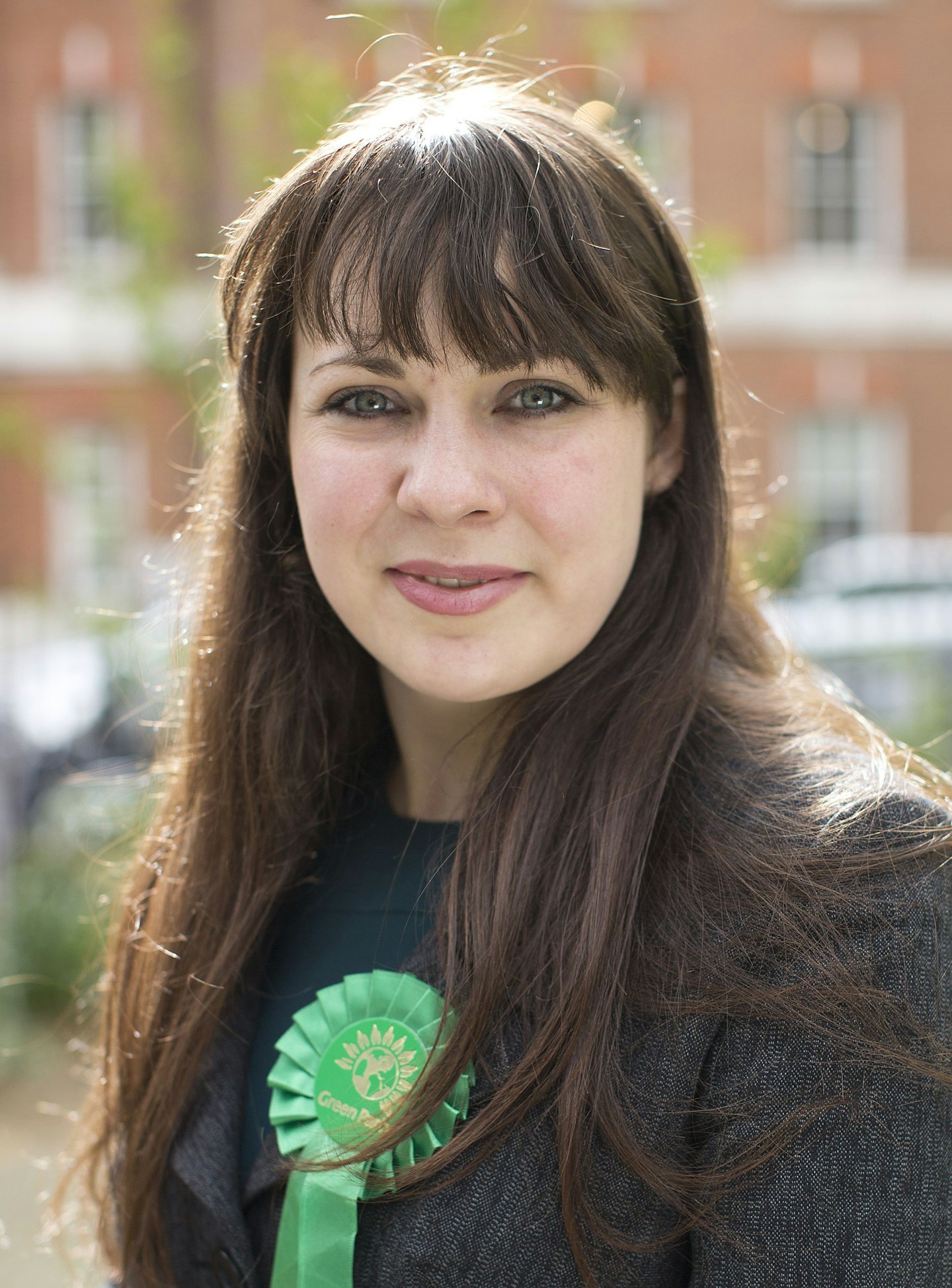
'We're the only party standing up to Tory cuts and extreme Brexit,' says Green Party deputy leader Amelia Womack. Number of MPs: 1
‘We’ve already invited Labour and the Lib Dems to the negotiating table to discuss how we can create a better country because it’s crucial we work together to replace this Government. Local parties are currently in negotiations about potentially pulling their Green candidates if any electoral alliances are arranged.The politics of hate and fear have no place in a tolerant society and the Greens will stand up to Theresa May’s reckless Brexit plan and heal the division fuelled by the EU referendum.
We’re the only party fighting both Tory cuts and an extreme Brexit. From the NHS to tuition fees, the Greens have a bold, positive vision for the future to create an open, inclusive society and a prosperous economy for everyone. We’ll be building a brighter future for young people with policies such as a shorter working week, ending exploitative zero-hours contracts and working to secure a Parliamentary vote on EU negotiations, while standing up for the environment and ghting climate change.’
WEP
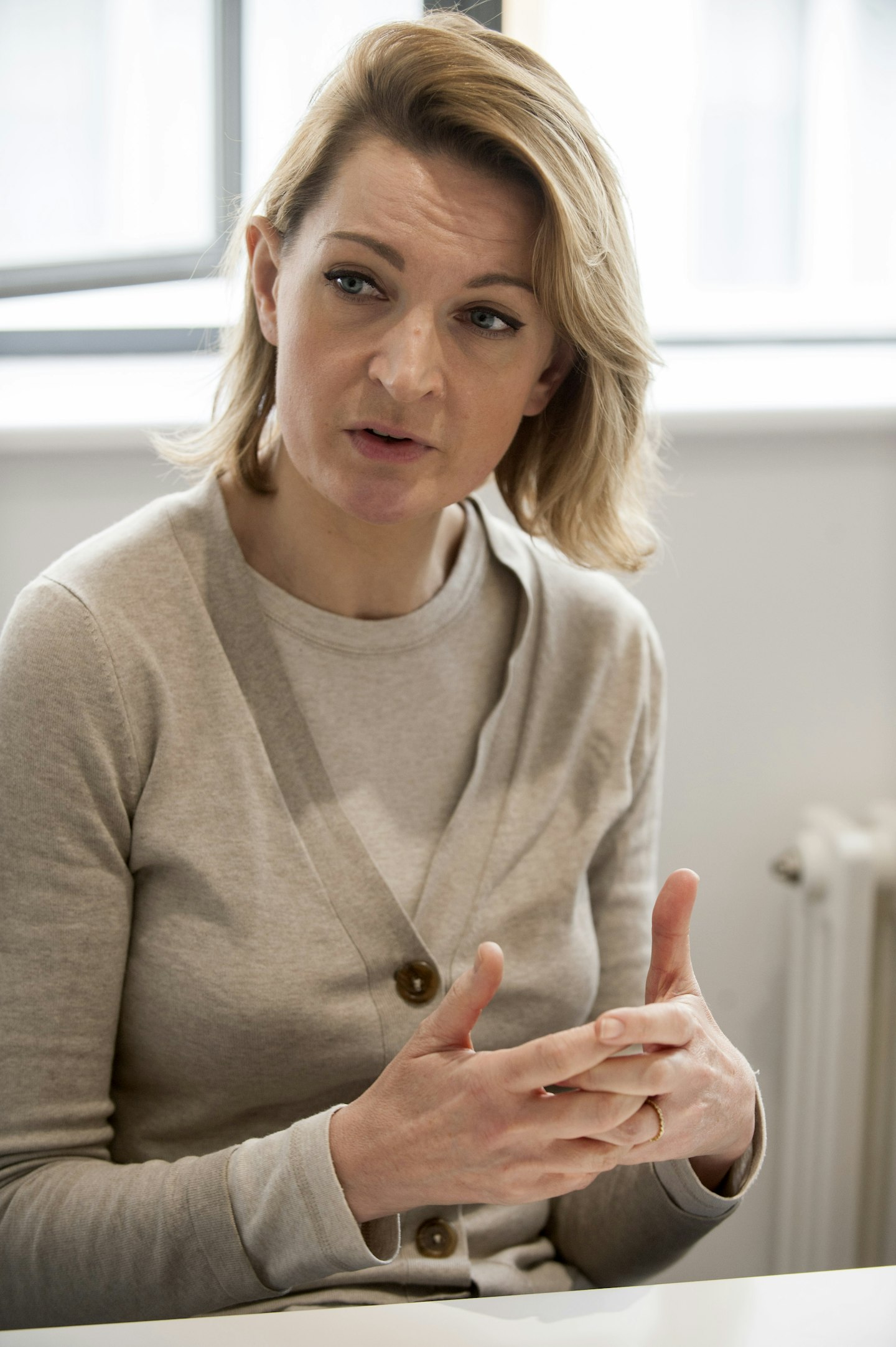
‘This June we can joyfully shatter the model that leaves women’s choices until last,’ says Women’s Equality Party leader Sophie Walker. Number of MPs: 0
‘This election is a chance to put hope back on the agenda. The Women’s Equality Party burst into life two years ago to build an alternative to the last national poll in which every party manifesto left women’s choices until last. This June we can shatter that model with the politics of women’s liberation and a collaborative approach to creating fairer systems for everyone. We will protect women’s access to equal pay, pregnancy rights in the workplace and part-time workers’ rights – and assess the final Brexit deal according to whether it really does deliver on the promise of a better future for all.
We’ll invest in care and carers as an economic priority and build an equal education system that gives all children equal chances, regardless of gender. We will reverse repellent rape clause legislation and fund women’s services.There is a different way this time. We’ll be mobilising our army of supporters to canvass in the areas where we stand, speaking directly to as many women as we can – and, crucially, listening to them. We can’t wait any longer to make women’s voices heard. We understand many people are disillusioned with politics, but we are a new party with new ideas and a focus on fairness, justice and equality. We can’t wait for this election.’
UKIP
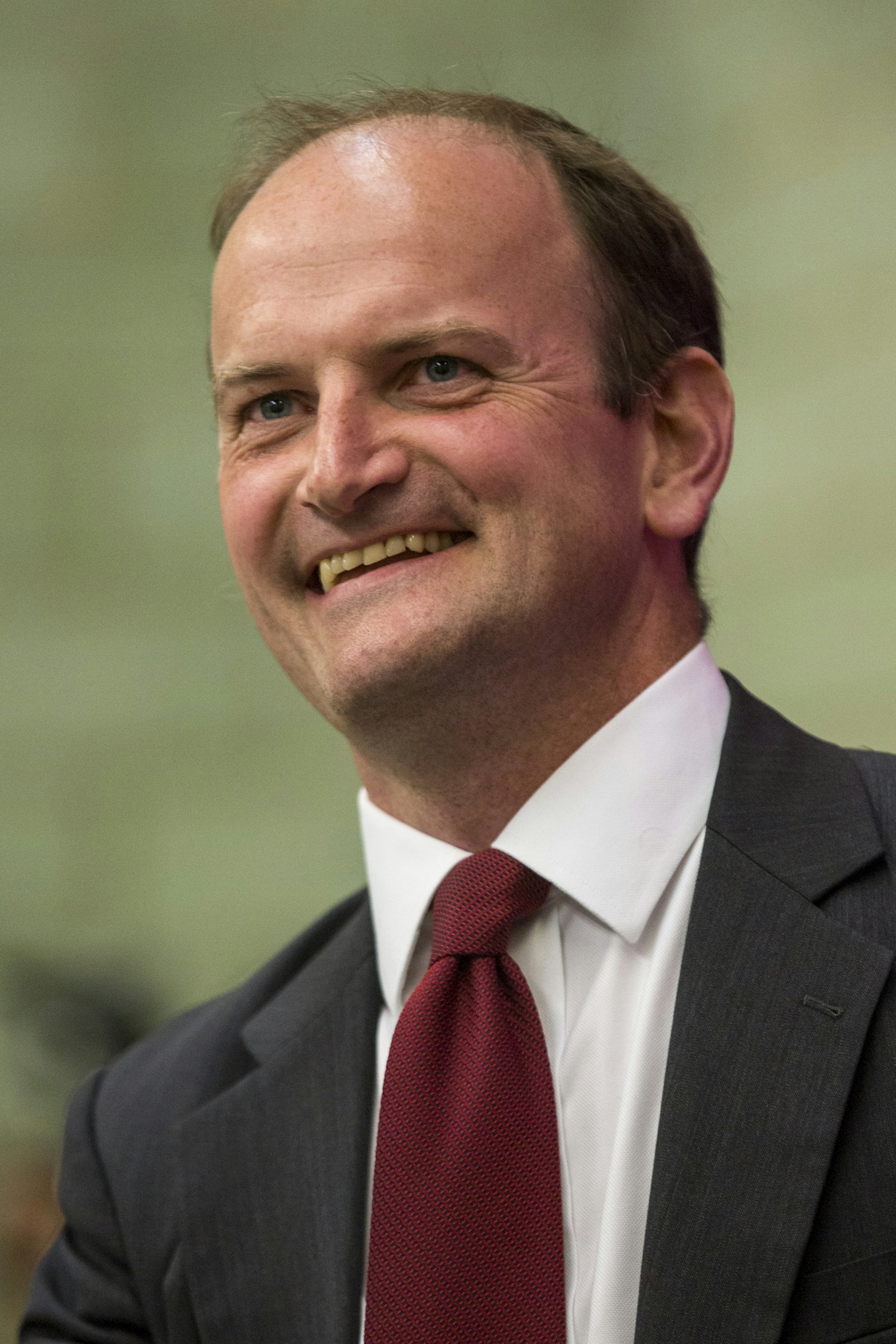
‘Britain should be fully independent,’ says UKIP leader Paul Nuttall. Number of MPs: 0 (after Douglas Carswell quit in March)
‘This election is unnecessary, driven by cynical political advantage on the part of a PM seeing utter chaos in the official opposition, rather than in the interests of the country as we deal with the intricacies of Brexit. But in a few short weeks we will go to the polls. People will have the opportunity to vote for UKIP, a party that believes Britain should be fully independent
to control its laws, borders, shing grounds. One that believes this country should fund its defences properly rather than frittering money on ill-considered international aid projects. One that funds social and health care for its own citizens rather than opening the NHS to the whole world while British taxpayers pay. One that believes in choice in education for all, not just for the affluent. One that believes criminals deserve to pay for their crimes.One that believes that this country and its people are good enough.’
Lib Dem
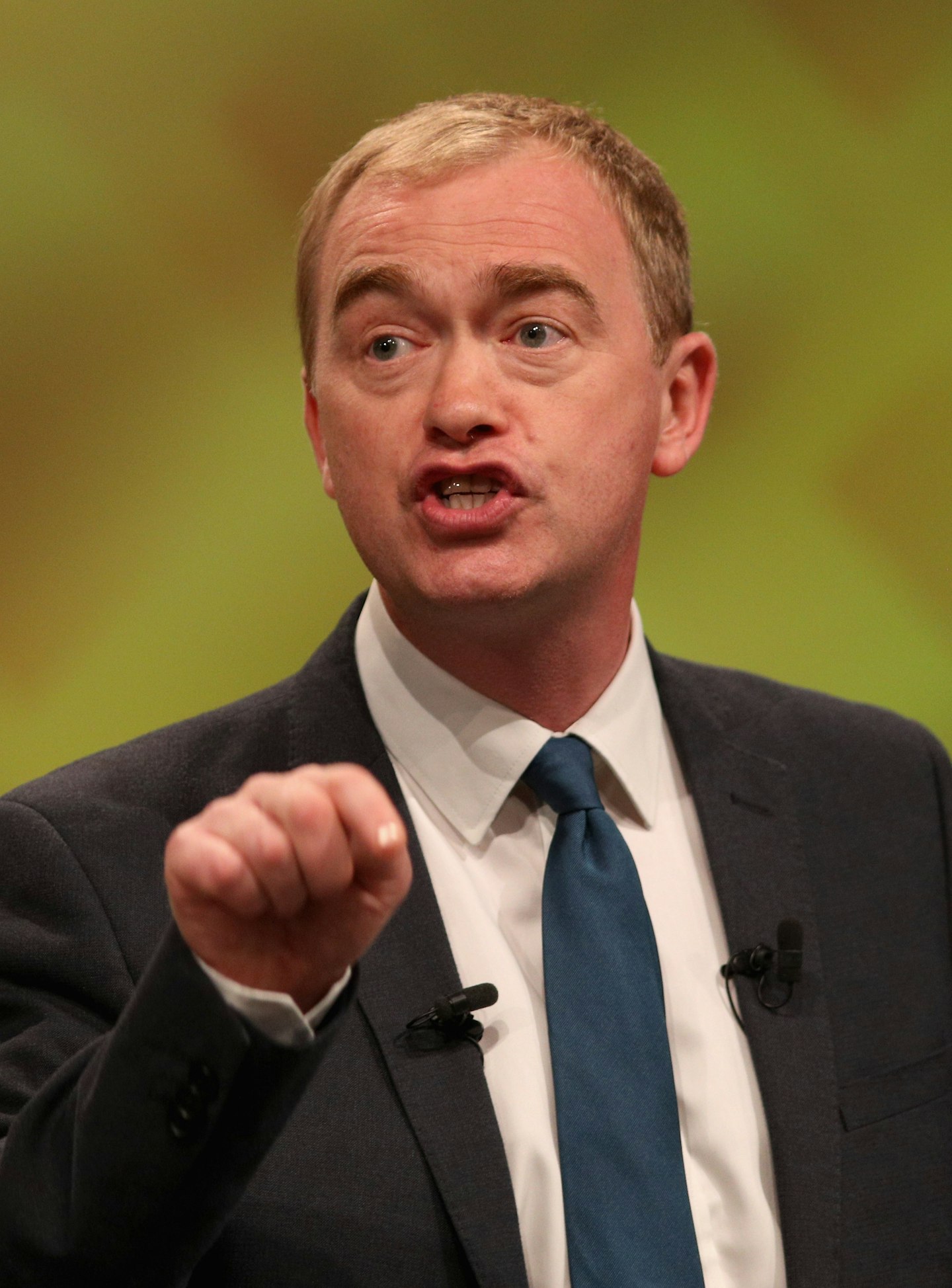
‘This is about winning seats for the Lib Dems, not propping up another party,’ says Lib Dem leader Tim Farron. Number of MPs: 9
‘We think we’re in with an excellent chance. We are up against three
parties – Conservative, UKIP and now Labour – all saying exactly the same thing: hard Brexit. Regarding a coalition, this is about winning seats for the Lib Dems, not propping up another party. May has overestimated the likelihood of winning – she is expecting a coronation and refusing TV debates, because she sees how weak Corbyn’s Labour is. It is our job to prove her wrong. We are fighting to stay in the single market, which we think is vital to our economy.
Only the Liberal Democrats fought to protect worker rights, for environmental protection and to give young people the opportunity to travel, study and work in Europe. We fought to give the people the nal say on the deal. 48% of the electorate voted to remain and many Leavers don’t want this disastrous hard Brexit, which independent commentators say will cost up to £200bn over 15 years. We are also campaigning to give the NHS and social care the long-term funding they so desperately need. We are ghting to keep Britain open, tolerant and united.’
You! The Election Jury
Fancy grilling all the major players? We are taking a select band of readers on the campaign trail. To join our Election Jury, email election@graziamagazine.co.uk with a mini bio, your burning question on the vote and where you live.
